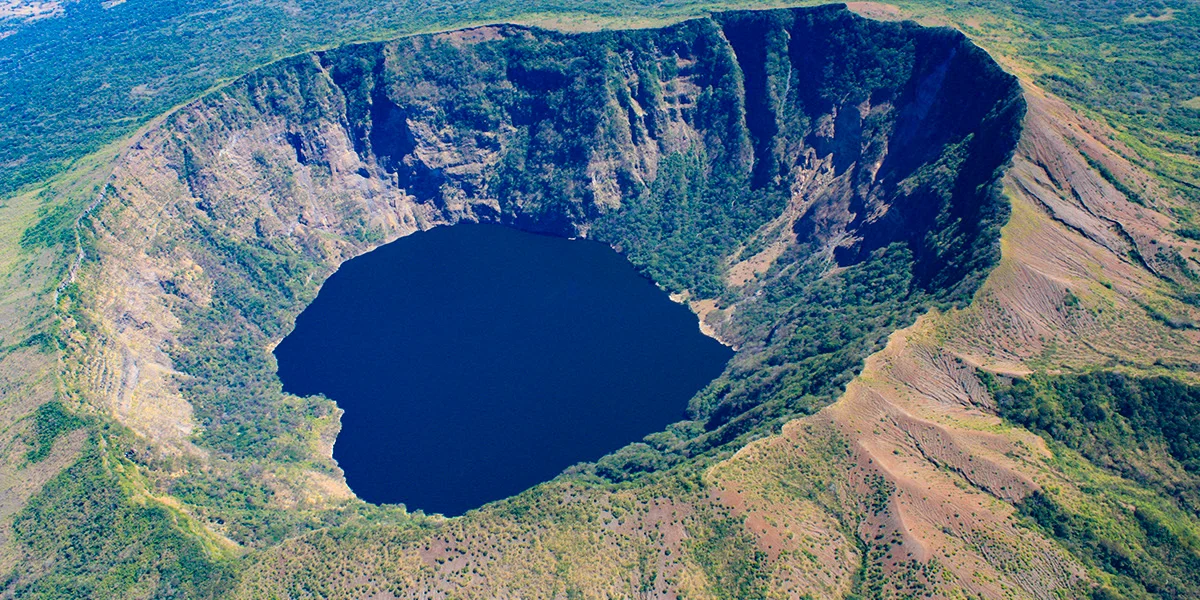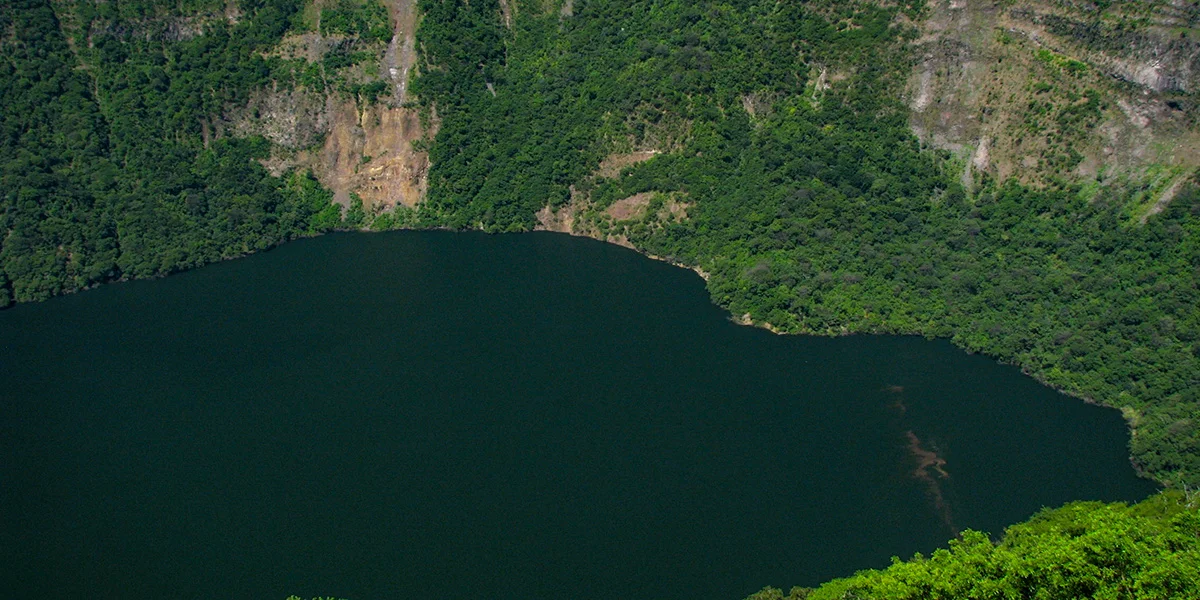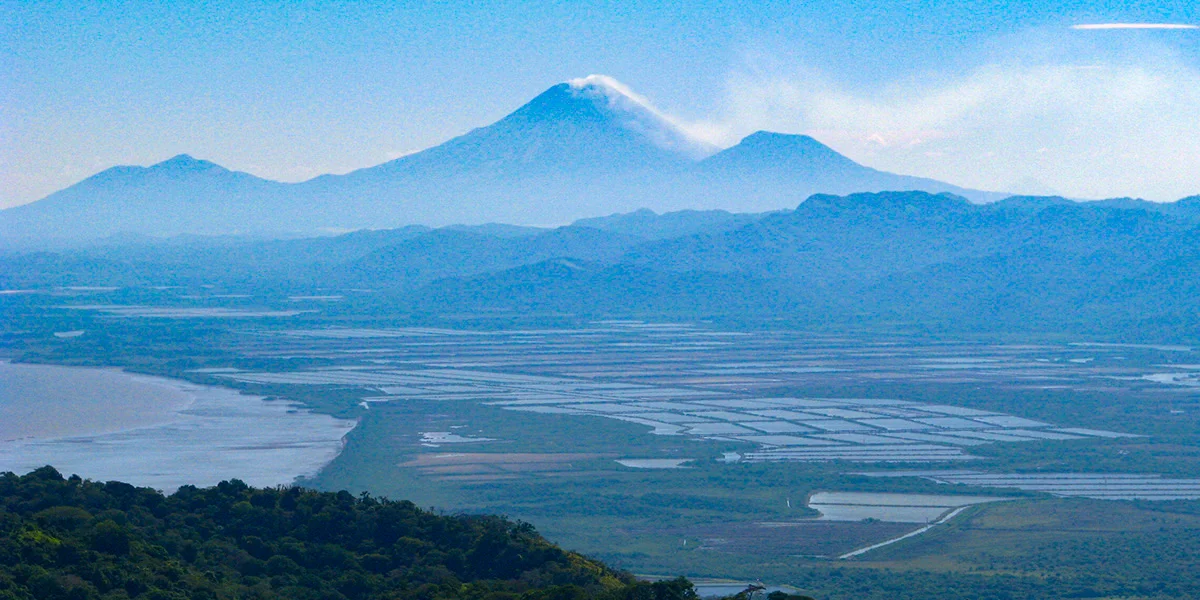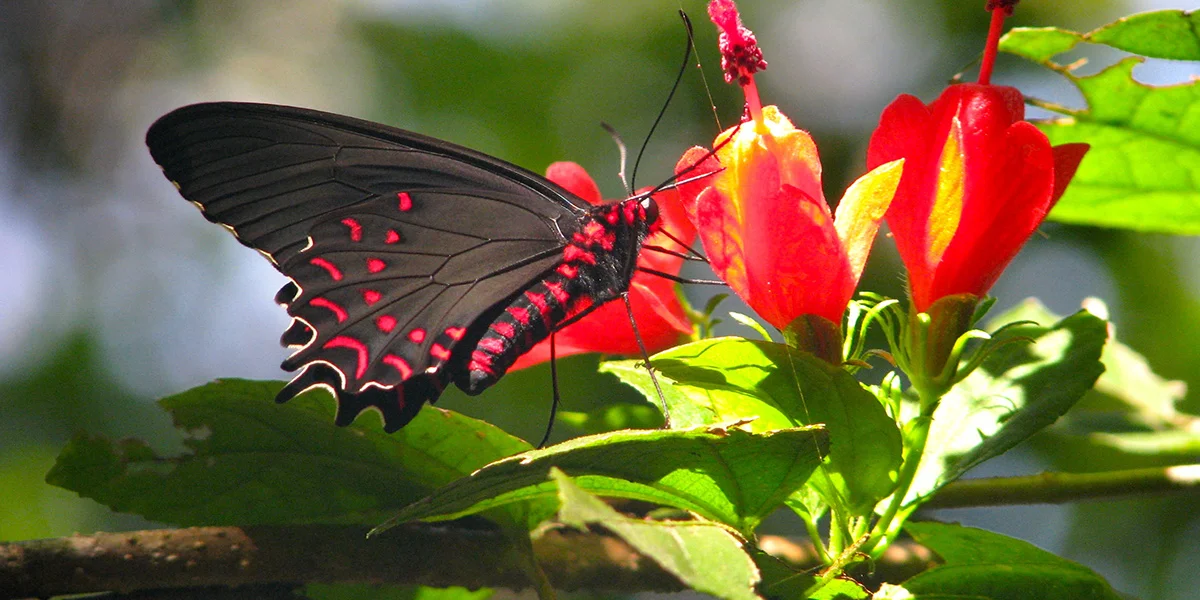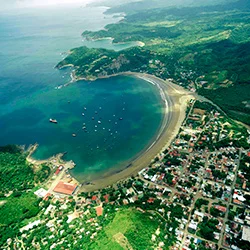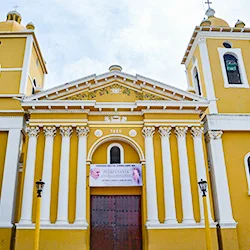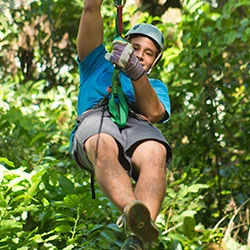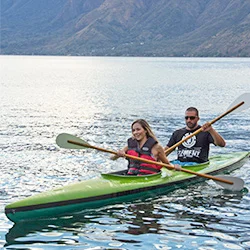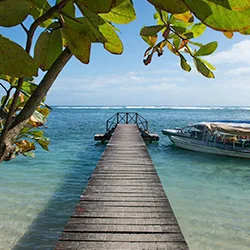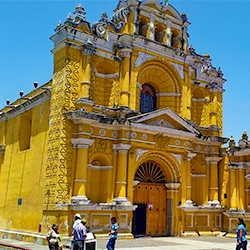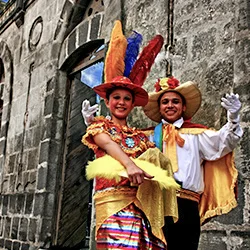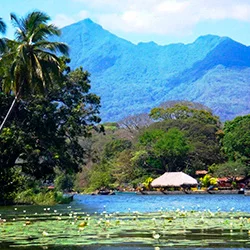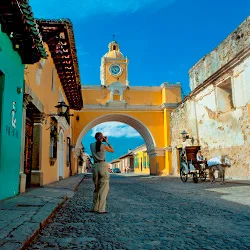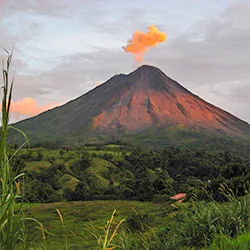Cosigüina Volcano
IN 1835, IT PRODUCED THE LARGEST KNOWN HISTORIC ERUPTION IN NICARAGUA
Cosigüina is an extinct volcano located northwest of Nicaragua, on the Cosigüina peninsula, Chinandega department. Its central part opens 2,500 meters in diameter and 700 meters deep, formed by the great Vesuvian explosion followed by the collapse of the structure during the eruption of January 1835, subsequently originating in the bottom of the crater a lagoon.
The Cosigüina volcano stands as a watchtower of the Cordillera de Los Maribios, which peninsula runs between the Pacific Ocean and the Gulf of Fonseca. It has a height of 859 meters, and is one of the last Wildlife Refuges on the slope of the Pacific, surrounded by forests.
At the top of the volcano there is a Mirador called “Mirador de los Tres Países”, named because from the viewpoint you can see part of El Salvador, Honduras and Nicaragua. The volcano offers four trails to climb it: the Path of the Guacamaya, Potosí, Jobo and Cape Horn. The hike up the volcano lasts approximately eight hours if it starts from the bottom of the volcano, or three hours if yuo go up by car the first half. The best way to plan the climb to the volcano is staying at one of the hotels near the volcano, where you can arrange transportation and a guide.
Climbing the Cosigüina volcano is quite a challenge. The journey to reach the top of the volcano takes about two to three hours. During the tour, you can see endangered species such as the red macaw and the yellow-naped parrot, and when you reach the top of the volcano you can see its famous crater lake formed as a result of the eruption and the collapse of the volcano.
GEOPOSITION
Route of the Flowers
Lake Coatepeque
Islands Bocas Del Toro
RECOMMENDED TOURS
The perfect combination of Central America
Discover Honduras and Guatemala by learning about their culture, people, natural resources, colonial cities, and their Mayan archeology
Fast Central America
Enjoy Nicaragua and Costa Rica in this tour that will take you to Managua, León, Granada, Monteverde, and La Fortuna, among other great places.
Guatemala – Nicaragua – El Salvador: Charco Verde & Petroglyphs
Travel through volcanoes, Mayan archaeological sites, colonial cities and natural parks in this Central American multi-destination tour.
The Magical Guatemala
A journey through the architectural gems, the indigenous communities, the natural spaces, and the most important archaeological zones of Guatemala and Honduras.
Costa Rica – Nicaragua: Forests, Volcanoes and Colonial Cities
Hike through the forest, fly through the trees, visit impressive colonial cities, and admire active volcanoes...feel a thousand sensations
